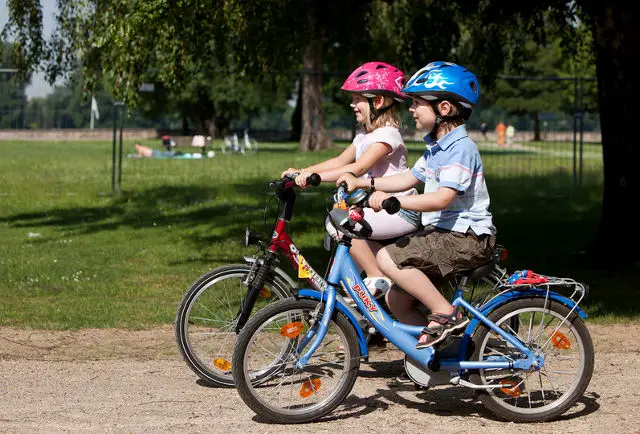The Isle of Wight Council has approved plans to get more people into walking and cycling.
The Local Cycling and Walking Infrastructure Plan (LCWIP) follows on from a national strategy to double the level of cycling by 2025, increase walking activity and the number of school children walking to school and reduce the number of cyclists killed or seriously injured on roads.
‘Ambitious plans’
Set out in six stages, the LCWIP maps out ‘ambitious plans’ to increase walking and cycling networks on the Island over a ten-year period, which will help promote the Island as a walking and cycling destination, support and increase sustainable transport and increase the percentage of children and young people using active travel modes.
Focusing on Newport and Ryde to start with, selected as ‘priority settlements’ because they have the biggest populations, the rest of the Island will be carried out in phases, identifying improvements required at a local level.
A “Transformation in volumes of cycling and walking”
The plan sets out 16 cycle and 24 walking routes that will be prioritised, creating new paths or making improvements to old ones, to help support the council’s work on sustainable transport — saying, “which, if implemented, will lead to a transformation in volumes of cycling and walking in Newport and Ryde”.
Once plans have been implemented in the two towns, the LCWIP will be used as a template to replicate results across the Island.
Plans approved
Stakeholders including CycleWight, town and parish councils, and Newport and Ryde regeneration groups have helped develop plans.
The plan was approved last week through delegated decision by cabinet member for infrastructure and transport, Cllr Ian Ward.
One of the reasons given for the decision was the potential investment in cycling and walking, which also “supports the delivery of public health outcomes in relation to creating greener and more active communities, improving resident and visitor health and wellbeing.”
Article edit
10.25am 28th Apr 2020 – IWC document added
This article is from the BBC’s LDRS (Local Democracy Reporter Service) scheme, which OnTheWight is taking part in. Some alterations and additions may be been made by OnTheWight. Ed
Image: eucyclistsfed under CC BY 2.0





